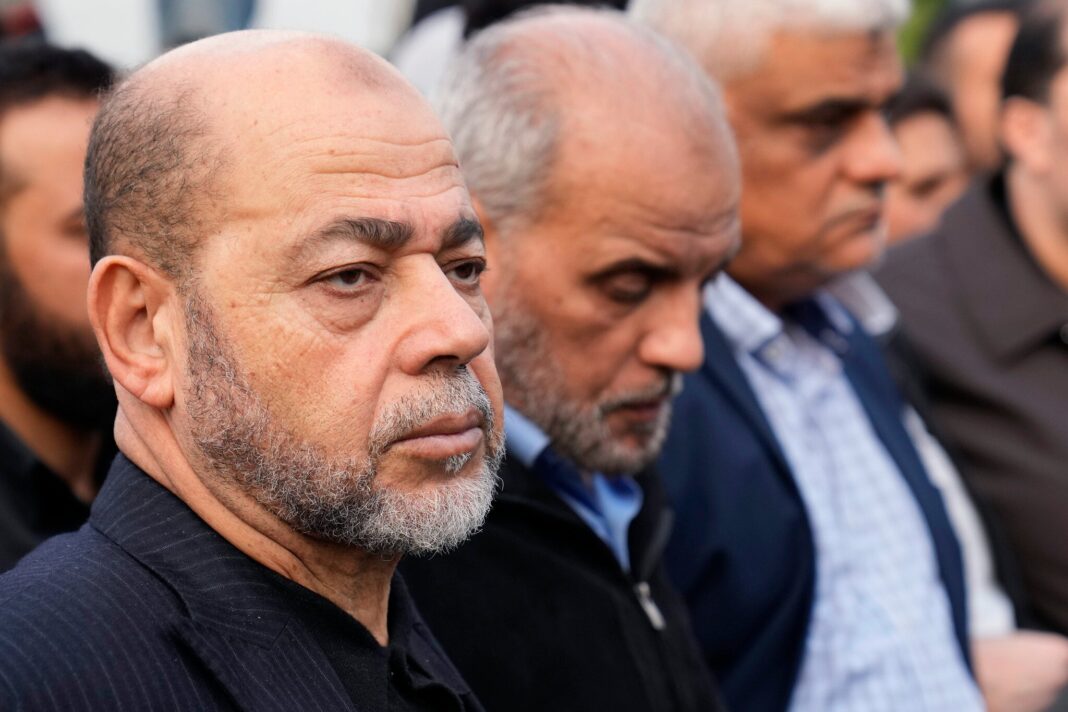Senior Hamas official Mousa Abu Marzouk stormed out of an interview Saturday with the pan-Arab al-Ghad channel after being questioned about the impact on the people of Gaza of the October 7, 2023, invasion and massacre.
The interviewer noted that Hamas “said October 7 would liberate Palestine,” to which Abu Marzouk retorted that it was “illogical that 1,500 fighters would liberate Palestine.”
“Ask respectful questions,” he demanded, to which the interviewer responded that he was “asking the question of the Palestinian street, the question of the Gaza Strip.”
Refusing to answer the question, Abu Marzouk instead demanded to end the broadcast and cut the interview short.
After the Hamas official stormed off, the host remarked that the display “unfortunately reflects Hamas’s way of thinking and its evasion of answers and questions regarding the nature of the current phase, in light of the destruction of the Palestinian people.”
למי שפספס: מוסא אבו מרזוק מחמאס נוטש בזעם ראיון בערוץ אל-רד:
מגיש: אמרתם שה-7.10 ישחרר את פלסטין
אבו מרזוק: זה לא הגיוני ש-1,500 לוחמים ישחררו את פלסטין, תשאל שאלות מכובדות
מ: אני שואל את שאלת הרחוב הפלסטיני
המגיש אחרי הנטישה: זה משקף לצערי את המחשבה של חמאס והבריחה מתשובות pic.twitter.com/QkLhKxBLYx— Nurit Yohanan (@nurityohanan) October 11, 2025
Despite his statements, the senior Hamas politburo member told The New York Times in February that he would not have backed the October 7 assault had he known what the consequences would be for the Gaza Strip.
“If it was expected that what happened would happen, there wouldn’t have been October 7,” Abu Marzouk said, asserting that — though he claimed to not have been privy to the exact details of the planned assault — he could not have brought himself to approve it, knowing what he knows now.
His remarks at the time, a departure from previous statements by Hamas officials, were not well received by the group, which issued several statements criticizing Abu Marzouk’s comments.
Hamas’s popularity in Gaza has declined over the past two years, with many residents blaming the group for sparking the devastating war with its onslaught.
Displaced Palestinians walk with their belongings past destroyed buildings as they return to their homes in Khan Younis, southern Gaza Strip, October 10, 2025, after Israel and Hamas agreed to a ceasefire and the release of the remaining hostages. (AP Photo/Jehad Alshrafi)
Earlier this year, sporadic protests against the terror group took place in the Strip, with Hamas attempting to detain and harm the dissidents.
The October 7 attack — in which thousands of Hamas-led terrorists burst across the Gaza-Israel border, killing some 1,200 people, mostly civilians, and taking 251 hostages, amid rampant acts of brutality and sexual assault — sparked the subsequent war in Gaza, which has flattened the enclave and seen tens of thousands killed.
The Hamas-run Gaza health ministry says more than 66,000 people in the Strip have been killed or are presumed dead in the fighting so far, though the toll cannot be verified and does not differentiate between civilians and fighters. Israel says it has killed over 22,000 combatants in battle as of August and another 1,600 terrorists inside Israel during the October 7 onslaught.
First Appeared on
Source link





